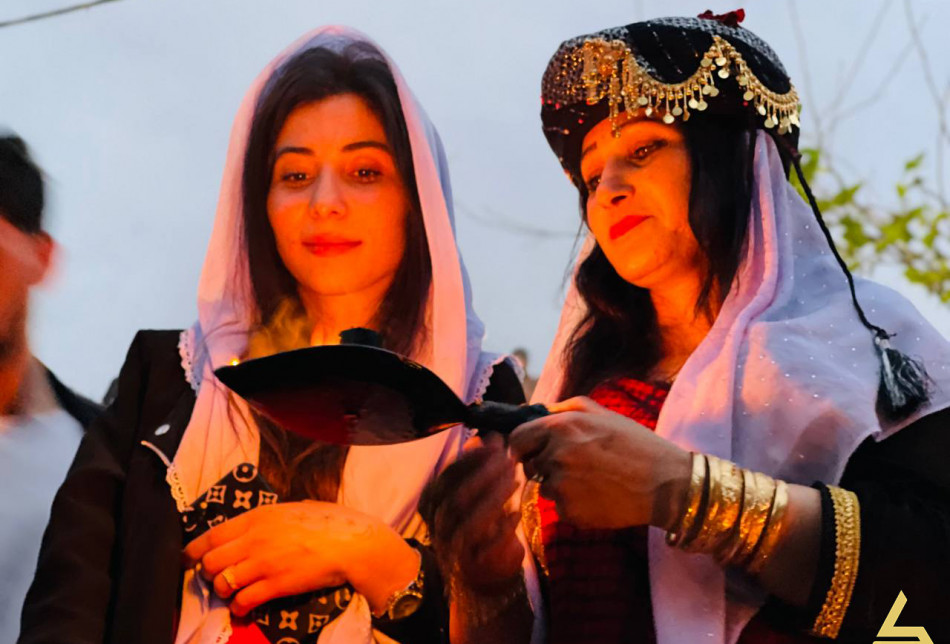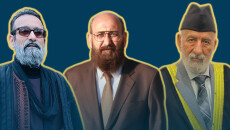The tribes of Shingal district home for the non-Muslim Ezidis have demanded a cut in the dowry to half due to the rise in the price of gold.
A meeting was held on Friday, December 17, at the house of Sheikh Qasim Samir in the center of Shingal. Sixty-nine tribal chiefs were present at the meeting, which aimed to gather opinions on reducing the dowry amount.
“They all agreed to increase the dowry to nine and a half Mithqal,” one of the tribal chiefs in Shingal stated.
According to a letter from the meeting obtained by KirkukNow, the tribal chiefs emphasized that the purpose of the meeting was to ensure that the increase in the price of gold would not hinder young people from getting married.
Traditionally, the dowry among the Yazidis is set at 75 grams (19 mithqals), but the chiefs are pushing for a reduction by half.
Last August, the Ezidi (Yazidi) Spiritual Council has decided to reduce the dowry to encourage marriage among young people as gold prices are currently skyrocketing.
The council, the highest religious body for the non-Muslim Ezidi community, was attempting to reduce the gold dowry from 75 grams (equivalent to 19 mithqal standard) to only 47 grams, as the price of gold has reached 526,000 Iraqi Dinars IQD (USD 350) per mithqal, which is a significant burden for young Ezidi men planning to get married. Currently, the price of one mithqal of 21-carat gold hit 530,000 IQD.
Last August, Khidir Dero Khansuri, the adviser of the council, told KirkukNow, "Recently, young Ezidi boys and girls, as well as tribe chieftains and community leaders, have been requesting a reduction in the fixed advance gold dowry to better align with current costs. Therefore, the council has decided to reduce it by 26 grams."
Khansuri highlighted the financial constraints faced by young people, making it difficult for them to afford marriage. He emphasized the importance of announcing a decision on this matter to facilitate marriage for the youth.
The institution responsible for managing the affairs of the Ezidis within the Ezidi Spiritual Council is led by the Emir of the Ezidis. This institution serves as an umbrella for Baba Sheikh (the spiritual leader), the Sheikh Al-Wazir (Chief minister), and the head of the Qawwalin (Storyteller), issuing all decisions related to the Ezidi community.
The term "Ezidi" originates from the word "Ezdan," meaning God, representing an ancient monotheistic religion that is considered an extension of the Mithraic religion. The sacred Ezidi texts consist of two parts: The Book of al-Jalwa and the Black Book (Bushafa Rash), as well as sayings, verses, and poems, all written in the Kurdish language (Kurmanji dialect).
Ezidism is an ancient Middle Eastern monotheistic ethnic religion that believes in one God who created the world and entrusted it to seven Holy Beings, known as Angels, with Melek Taus being the prominent leader with authority over the world.
Ezidis primarily speak Kurmanji, one of the two main Kurdish dialects. Some Ezidis view Ezidism as both a distinct religious and ethnic identity, separate from the Kurdish identity.
There are an estimated 550,000 Ezidis in Iraq. Many members of this community were displaced, with over 100,000 Ezidis immigrating from Iraq, according to statistics from the General Directorate of Ezidi Affairs in the Kurdistan Regional Government (KRG).
Ezidis mainly reside in the Sheikhan District, north of Mosul, administratively part of Erbil Province, the capital of the Iraqi Kurdistan Region IKR), and the Shingal (Sinjar) District (120 km west of Mosul, administratively part of Nineveh Province.






